After nine long years of rejected applications and protests that packed city hall, Vancouver’s development permit board has finally approved developer Beedie’s controversial Chinatown condo project at 105 Keefer St. — with a few design conditions.
The anxiously awaited decision came after 100 people spoke at two marathon hearings that lasted until 10 p.m. on both occasions.
“You couldn’t help but be impressed by the number of speakers, particularly the very young and the very old,” said Lon LaClaire, the city’s general manager of engineering, one of the three board members, alongside the heads of planning and development.
The current board was caught in an unprecedented position.
Back in 2017, the previous board had rejected the proposal by a vote of two to one, saying that the project didn’t meet the “design test” for such a significant site.
Beedie then filed a petition in B.C. Supreme Court. In December 2022, a justice called the board’s decision “substantively unreasonable because the reasons provided by the board are inadequate” and ordered a reconsideration of the project.
None of the members of the current board were involved in that decision.
Many of the protesters who spoke out against Beedie’s project called for low-income social housing to be built at the site instead. But Theresa O’Donnell, the city’s head planner, said that such an ask is outside of the board’s power.
“The board has no authority to require social housing or below-market rental,” said O’Donnell. “The board has no authority to deny this project based on the zoning. Neither does the board have the authority to require the property owners to sell the property to the City of Vancouver or to swap with the property with another property owned by the City of Vancouver.”
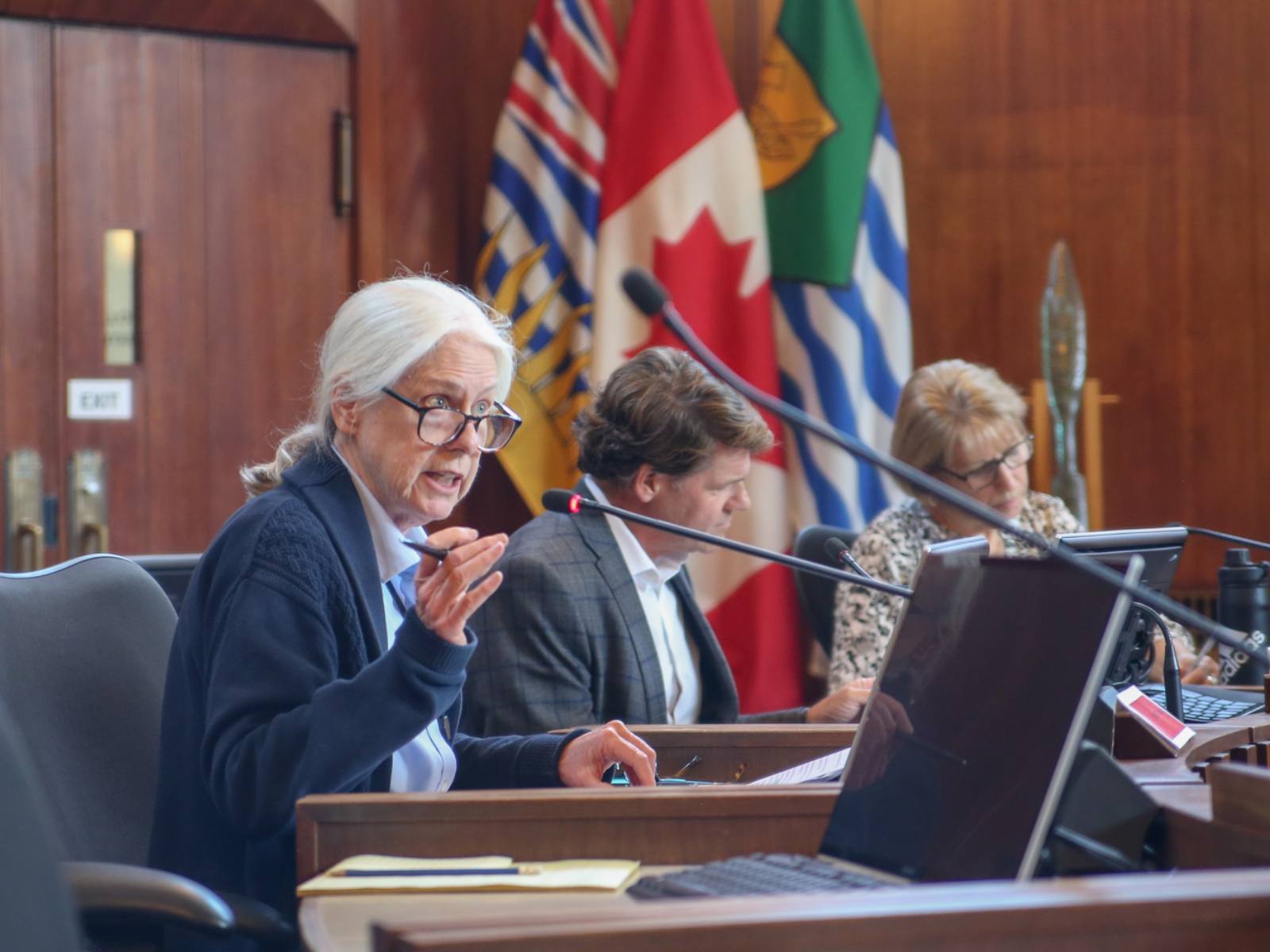
What the board does have discretionary power over, she continued, is the exterior design of the building, which could be more “welcoming” for such a significant site in Vancouver’s Chinatown.
The 105 Keefer property shares the corner of the block with the Chinatown Memorial Square, which recognizes Chinese veterans and railroad workers. It’s an important public space for the neighbourhood as a gathering place during festivals and Remembrance Day, as well as a recreation spot for exercising seniors and those meeting friends for casual visits.
The board’s conditions for approval have to do with ensuring that the project doesn’t overwhelm the plaza and fit with the look of other buildings in the neighbourhood. They instructed the developer to work with the “Chinatown art, design and cultural community” to do so.
Beedie’s managing partner Rob Fiorvento told The Tyee and other media that they were “obviously pleased” with the decision. He was “confident” they could work with city staff on the new design conditions.
“We do think this is the proper development for Chinatown, which helps along with the City of Vancouver’s plans to revitalize Chinatown,” said Fiorvento. “So even though it took a little longer than we expected, we’re glad we’re on our way.”
When asked about the opposition, Fiorvento said that Beedie consulted with community groups the last time the project was proposed in 2017 and plans to do so again.
The nine-storey project will have 111 condo units with shops and cultural amenity space.
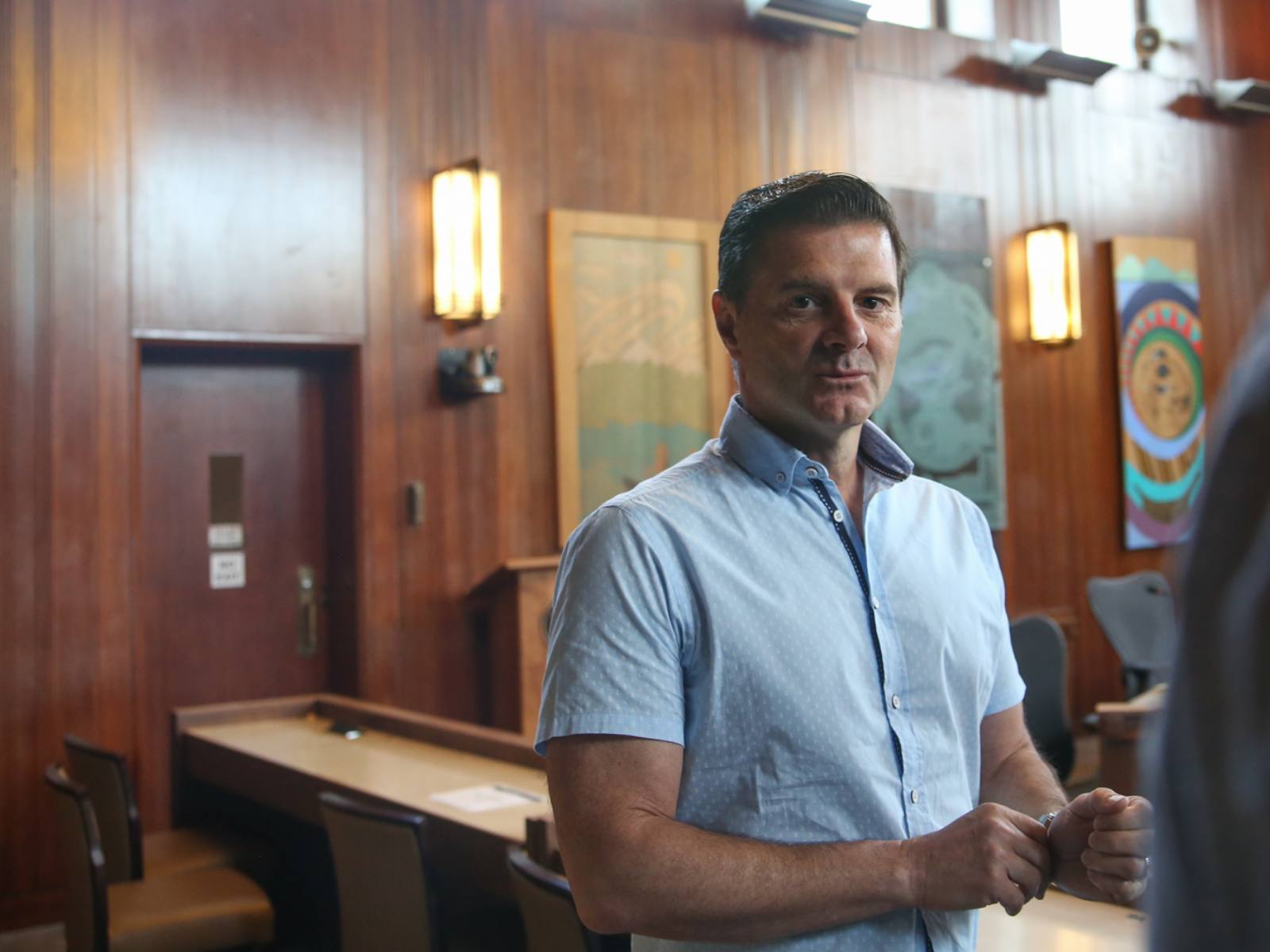
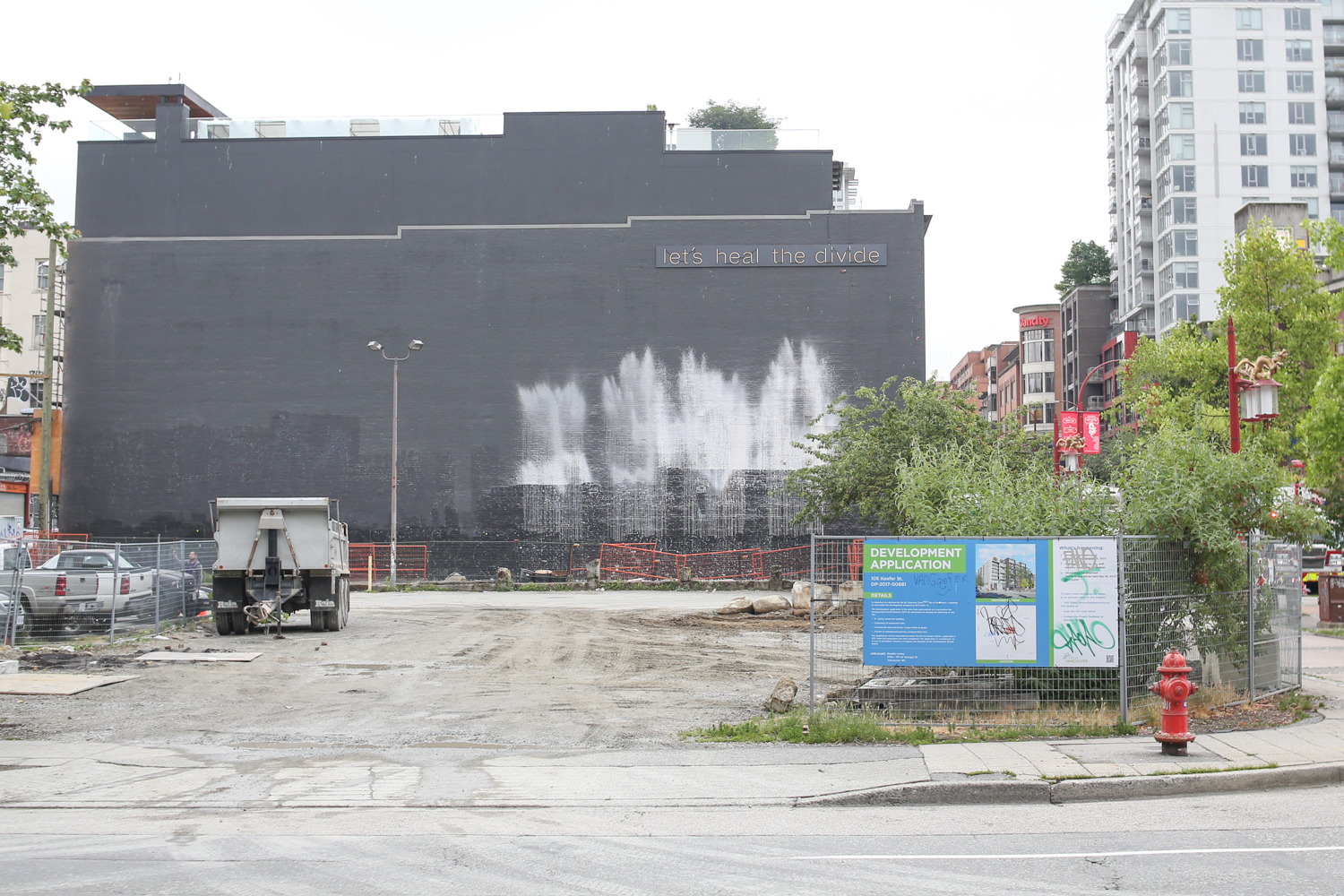
A Chinatown ‘façade’
Kung Ku Yang, a senior resident of Chinatown of over 20 years, just wants a place to do tai chi.
She had hoped for an outcome where a cultural space would be provided for residents to use. Her tai chi group was recently kicked out of the city-owned Chinatown Plaza Mall for using the space without permission. The situation escalated and police were called. The city had told The Tyee that it apologizes for the situation.
The city did not allow Yang and the crowd of attendees to watch the decision in person, instead providing a meeting room on the ground floor where they could watch on a television. A few young multilingual protesters acted as live interpreters, whispering Cantonese and Mandarin translations of the English language proceedings as they unfolded on the third floor.
The lack of Chinese language support for a Chinatown project was a major barrier to understanding what was happening in their own neighbourhood, noted residents like Yang.
“Still no promise of a cultural space for us,” she said. “Still no senior homes.”
Jade Ho, an organizer with the Vancouver Tenants Union, part of a coalition of Chinatown and renters’ groups who opposed the project, rejected the board’s reasoning of having to accept the project because it met the requirements of the existing zoning.
“I think this is a very good excuse to hide behind, by saying that they are only a technical board that should care about the designs and the engineering,” said Ho. “We have witnessed in 2017 the board actually rejecting the [proposal]. So they can certainly do it again on whatever technical grounds they can come up with.”
Ho found the design conditions for approval to be shallow and based on “stereotypes” of Chinese culture.
“If people can’t live there, where’s the culture? Culture is lived. If people can’t be there to enjoy the façade and however red they’re going to make the building to be, what’s the point? To be honest, I’m calling out systemic racism in this way of thinking about design, this way of thinking about culture.”
The tenants’ union and other groups against the Beedie project plan to lobby the provincial government to step in to expropriate the property for social housing.
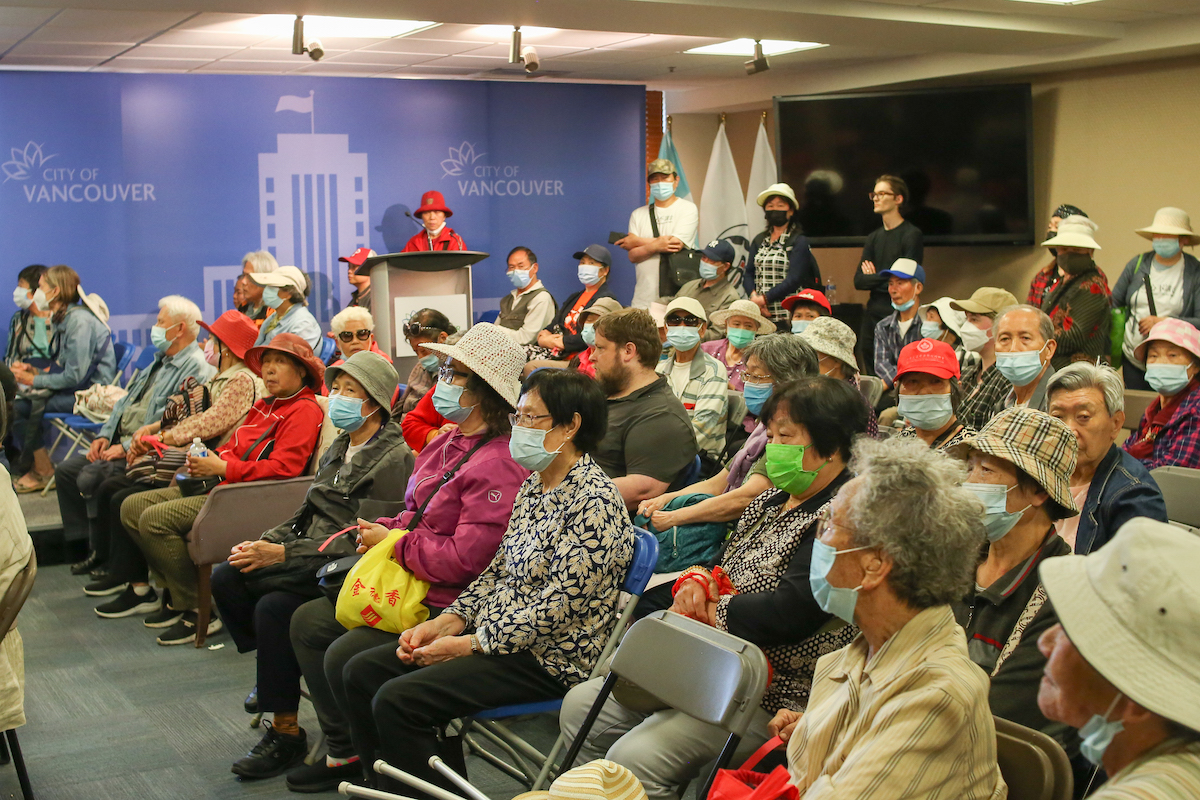
‘The rules have changed’
105 Keefer has been viewed as a bellwether for the future of Chinatown by supporters and opponents alike.
In recent years, the neighbourhood’s challenges include the declining number of Chinese businesses, the gentrification of blue-collar Chinatown into a trendy spot for upscale shops and services, the inadequate quality and limited supply of homes for Chinese seniors and issues with crime and safety, particularly incidents involving hate and discrimination.
Those in support of the building believe the new condo residents will help revitalize the area. Those against the building believe it will continue to make Chinatown too exclusive for its low-income residents. An open letter to the board from local organizations opposed to the project counted five new condo projects in recent years and noted that they did not bring “the promised increased business for our legacy, heritage, cultural and family-owned businesses.… Instead, they increased development pressure on the surrounding neighbourhood, and we watched as beloved neighbours continued to close their shops for good.”
On the day of the decision, property listings for Keefer Street condos in Chinatown range from a new 528-square-foot unit listed at $628,000 to a 2,557-square-foot floor in a renovated building listed at $2 million.
Ahead of approving 105 Keefer, engineering general manager LaClaire had some words for those protesters who hoped that this second consideration of the project would result in a rejection from the city.
“I heard a lot of frustration from speakers that felt like they’re back here to make the same argument,” said LaClaire. “What I would say to all those speakers is, in fact, the rules have changed.”
In 2011, city council approved development policies that allowed for taller and wider buildings in Chinatown in hopes that the new density would help revitalize the area.
However, following the 2017 protests in opposition to 105 Keefer, city council changed course in 2018, requiring new buildings to be smaller, to the disappointment of developers.
“The type of project that can be approved by this board now is different,” said LaClaire, recognizing the role of the protests. “They had an impact. They had an effect.” ![]()
Read more: Housing, Municipal Politics, Urban Planning




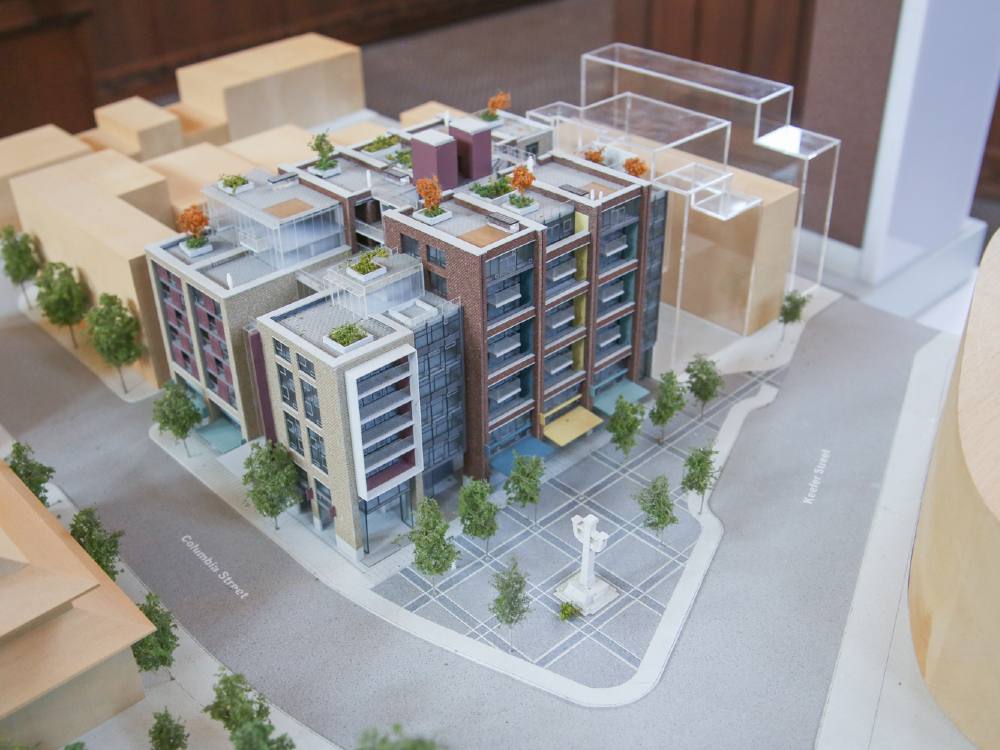












Tyee Commenting Guidelines
Comments that violate guidelines risk being deleted, and violations may result in a temporary or permanent user ban. Maintain the spirit of good conversation to stay in the discussion and be patient with moderators. Comments are reviewed regularly but not in real time.
Do:
Do not: